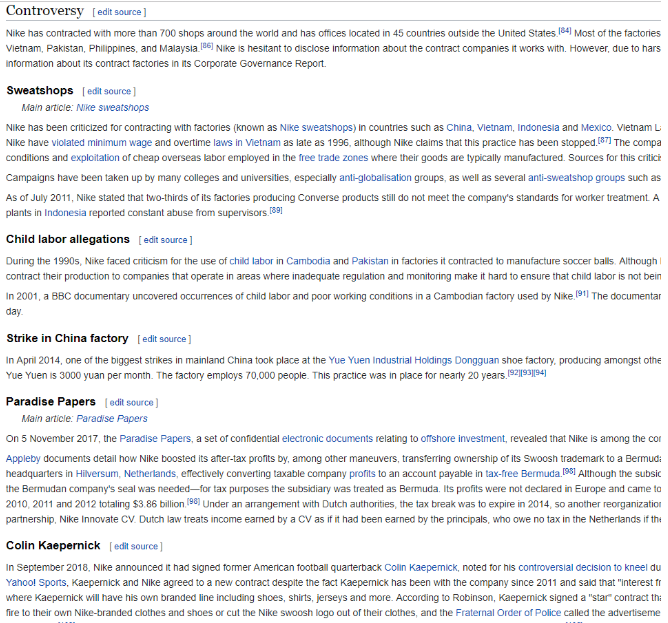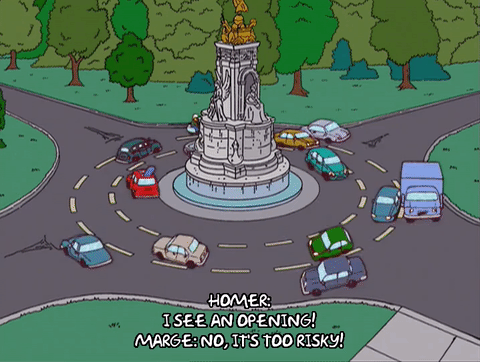If you’re here, you’re likely investigating setting up or updating a Wikipedia page for the CEO at your company or organization. Or, perhaps you are a CEO. Welcome.
Top questions that probably brought you here:
- My CEO would like to have a Wikipedia page.
- My CEO would like the content on their current page updated/changed/deleted/to sound more like our marketing material.
- My CEO wants his page and our company’s page updated immediately.
While there are a lot of general articles about editing Wikipedia, this article is designed to provide specific information on creating and/or editing a Wikipedia article on a CEO. You likely work in communications, marketing or a sales function and want quick, actionable information. After reading this, Email us, schedule a quick strategy call, or look at one of our recorded webinars, and we’ll help you sort through all of your questions right away.
Table of Contents
Managing Upward, Managing Expectations.
You’re not going to have a Wikipedia page that looks exactly like your ideal. Not for long anyway. Also, a lot of the things that you’d have in a company produced profile, like adjectives or long lists of awards aren’t going to be in there either. Remember, there are many Wikipedia editors in the world. Some of them may not like your CEO or company. Or, your company may have been involved in some controversies. Like it or not, Wikipedia editors as a whole tend to be a bit biased against companies, and it can be an ongoing challenge to get what you’ll consider fair or good coverage. The more you can convey this early on in the process, the better off you’ll be. Same with who’s going to do the changes. You don’t want to add “Wikipedia expert” to the list of other responsibilities you have. Trust me, it’s thankless, and you’re far better off having a resource that you can use, that you can consult, that can provide reports.
Why is Wikipedia Important?
Well, your CEO (or you as the CEO) have decided it’s important. They want a page, or they want information updated and corrected. So, there’s that 🙂
In a vacuum, though:
- It is a definitive source for consumers, investors, and press
- “Objective” research tool: Google any company and notice the results
- It almost always ranks in the top 3 on Google for any keyword, person or place
- 380+ Million Unique views per DAY
- It takes up the vast majority of the top right side of Google since Google eliminated right side desktop ads
Can I just go update a page?
Sure. It probably won’t go well. Most of the people we talk to, actually, have tried it on their own or had someone in their organization try it on their own, and had it go poorly. There are a variety of Wikipedia rules and norms that are completely counter-intuitive to what a well meaning corporate citizen might try. Easy example; your website lists the number of employees you have. Makes sense, you’re a company, you know how many employees you have. But, you can’t use your own website as a source.

Breaking down a Wikipedia page, what are the parts?
Here’s your 5 second crash course.

What are the official Wikipedia rules?
- Assume good faith: Work with the assumption that other editors are making edits and comments in good faith.
- Neutral Point of View: No adjectives. No best, no only, no world’s first, unless you really, really can prove that’s the case.
- Copyrights: No copying that carefully crafted verbiage that corporate communications has scrubbed, agonized over, and finally gotten approval to publish
- Notability: Are there enough reliable news sources covering the topic of your article?
- Reliable sources: Hah. No using your press releases or your corporate site or your annual report.
- Verifiability: Other users can check that the information in the citation comes from a reliable source.
The real world – following “official” Wikipedia rules about conflict of interest, and posting on talk pages requesting changes can work. On the other hand, Wikipedia originated out of a socialist ethos, and there does tend to be an anti-company bias. So, that can be challenging when you’re in an organization that is looking for concrete immediate results. <sigh>

Wikipedia Challenges
There are a lot of ways that dealing with Wikipedia can move from a “we’ll get around to that at some point” to “Code Red Fire drill!!!!”
- It can get edited at any time / “Edit Wars”/ Trolling/ Etc.
- Edit wars – companies like to think a project is done. We’re not set up to handle a nicely crafted Wikipedia page going live, then 45 minutes later one word is changed, and then two weeks later in the middle of the night a paragraph is rewritten, etc.
- False and biased information
- CEO awareness
- Big, big controversies- Does this look like fun to manage?

Let's look at some CEO pages
Here is a full Wikipedia list of CEOs
At the bottom of every Wikipedia page, are the categories that the particular page belong to.
The bottom of Tim Cook’s page, for example, looks like the following:

If you click on categories, you can see who belongs to them. For example, a click can take you to a page with a list of people categorized as Chief Operating Officers. Or, you could look at this list: Technology CEOs. It’s a great way to see how other CEOs are represented.
Some more CEO examples:
- Christopher Burnham – notice the request for more citations at the top. Also, I’m surprised, that so many awards are listed.
- John Childs – the mention of political donations, unfortunately, raises the likelihood of Wikipedia vandalism and the need for monitoring.
- John Havens – Good example of a page that could use some clean up, and infobox, and a picture (which is probably a subject of a whole article on its own)
- Chief Executive stubs (briefly, not fully built out examples of Wikipedia pages):
- John Fawcett – Personal information, either the inclusion or exclusion of it, can often be a problem on Wikipedia. People have had trouble proving their own birthdays 🙂
- Jeff Arnold – The phrase “internet entrepreneur” in your bio is almost guaranteed to bring out the trolls.
- Keith Barr – stub page that wouldn’t be expected to change much.
Should I be doing this?
How’s your mental health? No, seriously – look at this article.
An excellent summary from the folks over at 5 blocks: https://www.fiveblocks.com/editing-your-brands-wikipedia-entry/
Clients often ask should they edit their brand’s Wikipedia article – Is it okay to edit these articles yourself?
Wikipedia’s official take:
“You are discouraged from writing articles about yourself or organizations (including their campaigns, clients, products and services) in which you hold a vested interest. However, if you feel that there is material within an existing article which is incorrect, or not neutral in its tone, you should point this out on the article’s talk page.”
In short, editing the Wikipedia page about your own company is discouraged, as Wikipedia wants to ensure its content is unbiased.

Before making a decision regarding editing your own, or your brand’s wiki page, consider the risk of getting called out for editing your own Wikipedia page. The Wikipedia community frowns on these articles, calling them COI: Conflict of Interest and tags them as such at the top of each article.
Always keep in mind:
- Edits to Wikipedia pages should focus on adding relevant content and correcting errors.
- Your IP Address and/or username will be recorded and can be seen by others. So it is never a good idea to edit Wikipedia pages about one’s own firm, using a company-owned IP address.
- Determine if there is significant interest in the Wikipedia article. Is it being tracked by other editors? Will edits potentially trigger alerts for these editors?
Should I, the CEO, be doing this?
No, no, definitely not. You have better things to do. Time and the value of money. Core competencies. Etc, etc. Giant messy creation that others will need to clean up.

Monitoring a Page
There are several different approaches to monitoring a Wikipedia page. The first is just bookmarking it, and looking at it every once in a while.
There are also the following:
- Wiki alert
- Add an extension in your browser, hook it up to your Watchlist, and every time a page you follow is updated, you’ll get an update in your browser.
- Email (Wikipedia tool)
- Get alerted by Wikipedia any time one of your tracked pages is edited. Visually, the Wikipedia tool is more technical, and the pages can only be tracked by one account & one email address.
- Email (Mather Group tool – coming soon)
- The Mather Group tool allows a user to input their email address and track any pages they’d like without being tied to a single Wikipedia account. When one of the tracked pages is edited, an email will be sent containing the visual differences of the page before and after the change.

Final Thoughts
If you have a lot of time, you CAN do this yourself. If not, talk to someone who spends a lot of time dealing with Wikipedia stuff to get a realistic view of your situation. Rather do some more research first? Try our online assessment to learn how else a Wikipedia page can boost your brand 🙂




